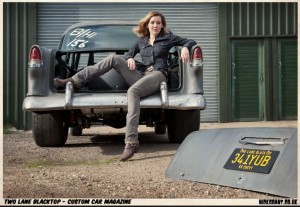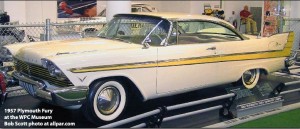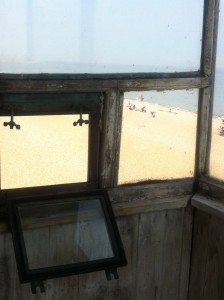Listen to No Batteries Required here.
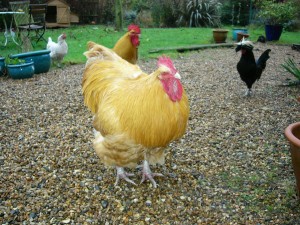 At the very end of 2012 I was siting in a pub talking to a man they call The Sausage King. I hadn’t wanted to ask for him by name in The Crown in Framlingham, but luckily I recognised him anyway. Which was something of a relief.
At the very end of 2012 I was siting in a pub talking to a man they call The Sausage King. I hadn’t wanted to ask for him by name in The Crown in Framlingham, but luckily I recognised him anyway. Which was something of a relief.
His hobby was and is sausages. For about ten years he’s been blogging about them before anybody else had. He rides a motorcycle around the countryside finding sausages and talking to people about them, writing books about them and making films about them. Because he does.
I’d had a food business and thankfully got rid of it before it got rid of me. Just. So we got talking, as you do, because although I came not to like or be much interested in the business, apart from getting rid of it, I’m extremely interested in food, where it’s come from and people who are interested in it. At the end of the second pint the bad thing happened. I had an idea. I’d known some stuff, as you do, the things I call the bones of the idea, the skeleton the meat hangs on.
The Bones
1) Battery cages for egg-laying chickens were banned on 1/1/2012. By March DEFRA, the government body that looks after farming, found that some chicken farmers weren’t complying with the law, so they set-up a special body to go and talk to them about why they should. If you try this with your road fund licence, saying that you don’t see why you should pay it and anyway you haven’t got enough money to buy one, then you get a criminal record and a fine. If you’re a farmer, DEFRA sets up a dedicated unit to explain the idea to you.
2) Kirsty Alsop was rumoured to be going to be made a government Minister by David Cameron if he won the election in 2010.
3) David Cameron and Hugh Fearnley-Whittingstall went to Eton and Oxford together.
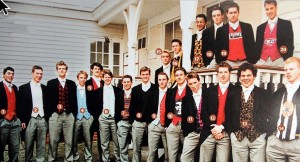
4) Kirsty Alsop is Cath Kidston’s cousin. People like that know each other, one way or another. For a long time I used to know lots of people on the periphery of that world, which is one reason I sort-of-know-of-but-not-very-well lots of people, but not enough to be made a Cabinet Minister, unfortunately.
5) People in public office are well protected, however man-of-the-people they might appear to be. I remember being on a crowded commuter train in Blackheath Standard one morning with my face jammed into someone’s armpit. It didn’t smell. Much more scarily, it was hard with distinct edges. I didn’t ask to actually see the gun the big bloke in the nondescript suit was wearing, but I didn’t really think I needed to. He was like the man I talked to in the Sloaney Pony one evening back when the world was young, who looked like a librarian. Some girl had just been making fun of how boring he was and his dull job in the Civil Service before she swung her hips out onto the Green. He was in the Diplomatic Protection Group. Looking boring was his job. During the day there was a Sterling submachine gun under his mac.
The Idea
Wouldn’t it be funny if a chicken farmer went nuts because he was going broke and decided it was all Hugh Fearnley-Whittingstall’s fault so he’d go and shoot him? Wouldn’t it be funnier if he did that the same day the Prime Minister decided to go and make his old school chum Minister of Food? What would happen if that happened?
And the consequence was, of course, that you have to actually write the thing once you say you will.
So I did. It became No Batteries Required, a half-hour play for voices that was the only thing I’ve ever written that kept the same title it started off with. I wrote Act One and got stuck, then four months later did the other Four Acts in about a week.
I sent it to the BBC who didn’t want it, so I found some local actors who did and we recorded it by coincidence again at The Crown in Framlingham, in the middle of December 2015, the day I was moving house. It wasn’t the best timing.
Then the difficult part, the sound editing. I didn’t have anyone to do it for me and like any of these things the first one is the worst and most challenging, because there’s a lot to learn. Even the most basic things in editing seem like huge hurdles until somehow, some time, you suddenly can’t remember when you couldn’t do them, or what all the fuss was about.
There are some things about the recording that can’t be fixed, because it was done on an iPhone (surprisingly good recording quality on those things, in fact) but we hadn’t thought to put it on airplane mode, so although the ringer was put on silent when a call did come in that next-to-the-radio dippada-dippada-dippada dip noise is all over the recording if you listen for it.

I used several tracks to record the different sounds and voicesand some are mixed too loud and some too soft. I sorted out most of the times I clipped words too shortbut there are probably still some there and there is rubbish left over at the very, very end of the recording after a two-minute silence. Other than that it’s fabulous.
Now I have to try to edit it again.
The PIN code was the funny thing. I made-up the least likely thing I could think of, the idea that when you’re stressed out of your head being attacked by terrorists and as the security services have all been privatised you’d have to remember not just a special phone number to dial but a PIN as well. A friend in the police read it through for accuracy and looked at me a bit oddly, even for someone in the police.
“How did you know about the PIN number?’
Apparently it’s not really secret secret, but it was odd that I knew about it. I didn’t guv. It’s a fit-up. It’s all porkies, like most of the stuff I write. And I’ve got to turn this into a screenplay now if that will be all, officer, because Cascade Studios said they want a look at it. Which is nice.
Chickens seem to be in the news at the moment. Or French porn movies anyway, which is arguably better.


